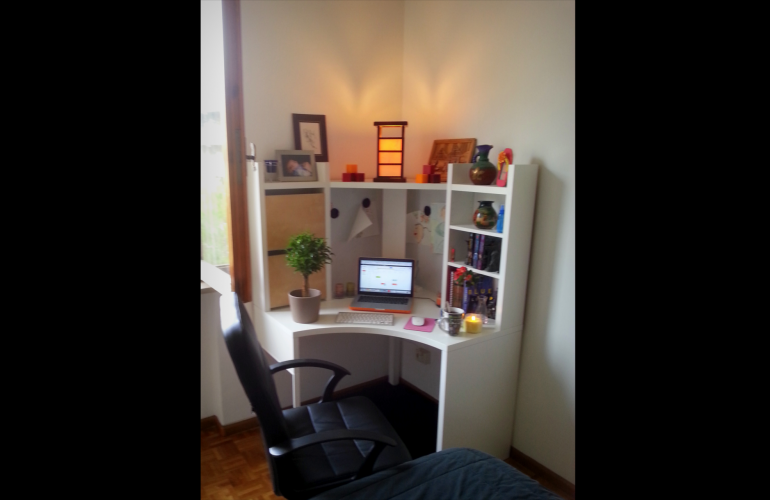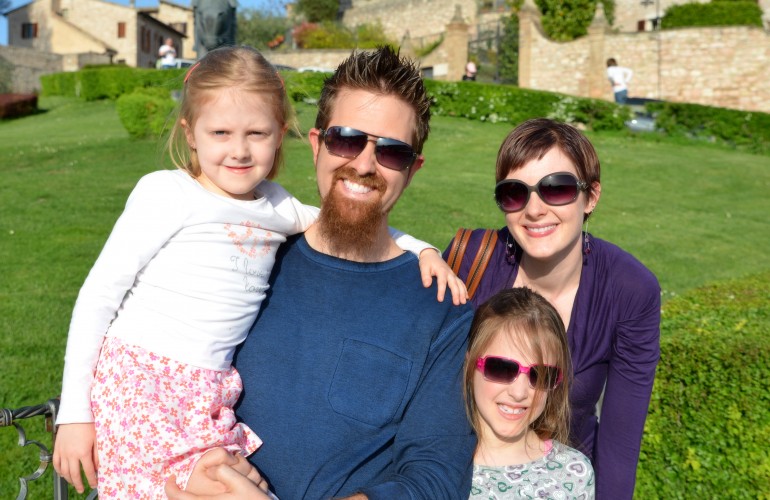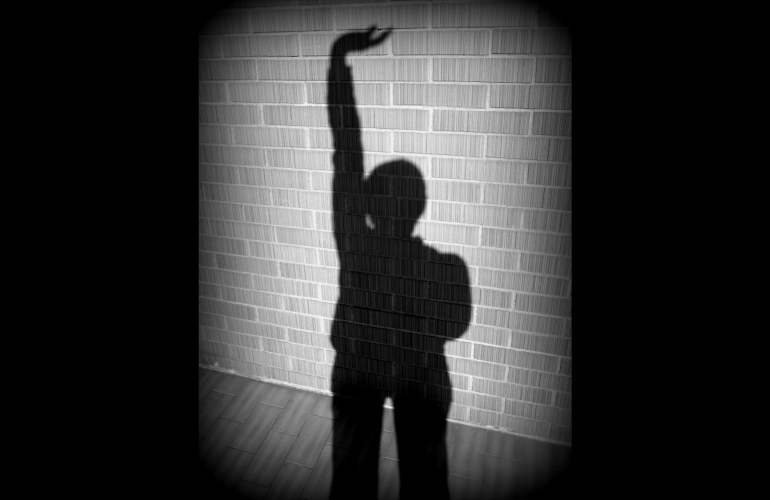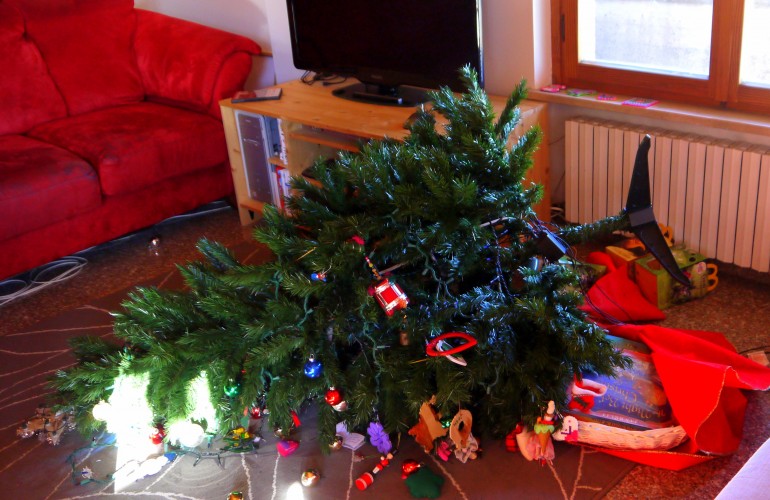We hear fireworks in the night but can’t see them. Though each boom and popcorn-crackle reverberates through our open windows, no light reaches high enough to clear the row of apartment buildings in front of us. I’d be all for shrugging off the disappointment, but my mind has already snuck down the street to our old house with its legend of a balcony. We used to stand there under the stars with the tip of my beloved Van Gogh tree beckoning the moon and watch no less than a dozen firework displays at once, the surrounding region our own personal snow globe. We could communicate with the weather from there—whisper to the first tentacles of fog slipping around church steeples, harness the green-eyed energy of summer storms, rub the golden hours between our fingers. My goodness, but I miss that view.
Once the pages of memory start turning, stoic indifference is almost impossible to keep up, and my nostalgia over fireworks and gold-tipped fog quickly turns into something sadder. The scent of heaven still lingering in my newborn daughters’ skin is a repeat offender at times like this. Could any memory possibly be more heart-wrenching after a day in which I have snapped at those same daughters for fighting over board games when they were supposed to be doing their homework, on a night when their legs seem to have grown longer than their mattresses and their hair forms sweat-tangled updos on their pillows?
Other memories stand at the ready too, each unwrapping its own flavor of longing: Firelight painting gold on the walls of our snowbound house in Delaware. Herds of zebras grazing below the hilltop where I journaled in the South African sunrise. Pecans nestled throughout a Texas-sized backyard like autumn Easter eggs. My heart blinking in delight the first time Dan met me at my front door with a kiss. Our girls (ours!) laughing past the point of motor control on the teacup ride at Disney World.
These sensory treasures are now rooted permanently in the past, and I feel what would be regret if not for the comforting sweetness in the center. I know that I’ve been at least a marginally responsible moment-enjoyer; every one of my fond memories exists because I welcomed it in person. No, regret has no place in nostalgia.
I’m still in the grip of a hollow sadness though, as though a balloon has inflated in the base of my throat, and I’m unwilling to let this be my final reaction to nostalgia either. Sometimes I feel like my truest profession in life is that of a war strategist against sadness. It targets me from so many angles, triggered by things as insignificant as the smell of oatmeal cooking or the sound of fireworks in the night. I can’t predict it and may never be impervious to its sudden charges. I can, however, fight back, so I take on my memories tonight with the biggest force of reality I can muster.
First, I coax my mind back to the present. The sum of my former lives is too much to take on at once. This is about now—this new house, still startling me with ways it is unlike our old; these precious family members sheltered inside, still startling me with ways they are unlike my impressions of them. This is about change, how I so readily dive into it without remembering how hard it always is in the end. I did it this summer, throwing myself into our move with gusto, never considering just how fiercely I would miss the familiar floor plans of the past. Now that we’re here, my heart keeps looping back on itself; it’s no wonder I find myself tangled.
The fireworks continue just beyond my reach, and I lay our former home life to rest in my mind. There were so many reasons we needed to move, issues of cost and architecture and utilities; it helps to give a slight nod to each from time to time just to acknowledge that we made the right decision. And then there’s the Van Gogh tree I so dearly loved; our landlord unexpectedly cut it down two days after I took that photo. I’d had no idea I was posting its obituary.
The tree reminds me that nostalgia is so often a revisionist history. There never were any Good Ol’ Days when all the magical elements of the universe came together at once. There was only ever the beauty and struggle of everyday life, followed by change and then by a different set of beauty and struggle. Those newborn babies I miss so much were accompanied by sleep deprival and postpartum depression. Those South African sunrises were followed by grueling days of physical and emotional labor. Those holiday nights we stood on our old balcony drinking in the display were often tense with frustration and frigid fingers due to problems with the house. The struggle was always alive and accounted for, just as the beauty is now.
I consciously turn my thoughts toward our newest version of everyday. We’re still getting used to it of course, but I can already begin to pick out the elements that will one day reshape themselves as nostalgia. Our neighbors, for one. We’re lucky enough to share this little complex with sweet and generous families who are well on their way to becoming friends. And then there’s my new kitchen, so spacious (at least by Italian standards) and gorgeous that I feel like I’ve won the culinary lottery. I will always remember this as the house where my girls grew into bona fide big kids—Sophie putting on her new purple glasses and trotting off to first grade, Natalie devouring Boxcar Children books with a reading lamp after her sister goes to sleep. This darling white writing desk is where I might actually finish the book that’s been simmering in my imagination the last ten years. This apartment is where our daughters’ childhood memories may one day come to roost.
These are the days of marathon training, walks to the bakery before lunch, pirate stories at bedtime, and family Uno championships. Likewise, they are the days of unreliable hot water heaters, occupational uncertainties, relational challenges, and tendinitis. Nostalgia won’t want me to remember the second list, but this is what gives the everyday its substance and meaning: struggle and beauty together, light and color blooming in the dark.
Acknowledging this is enough. My sadness retreats amid a shower of sparks.







